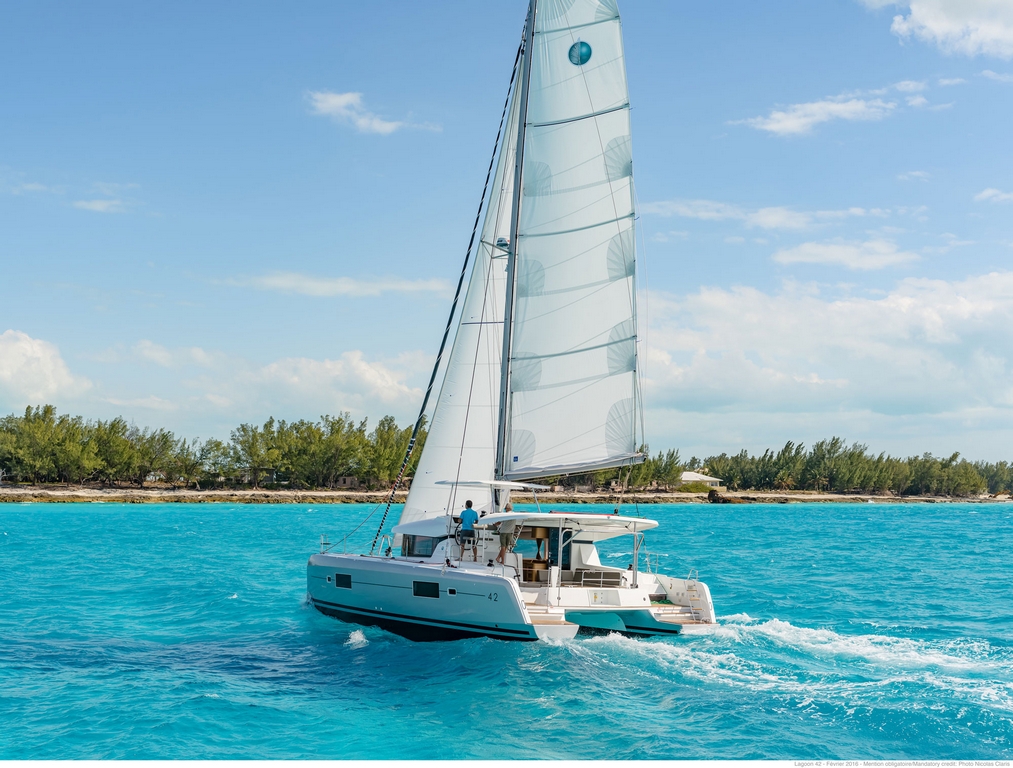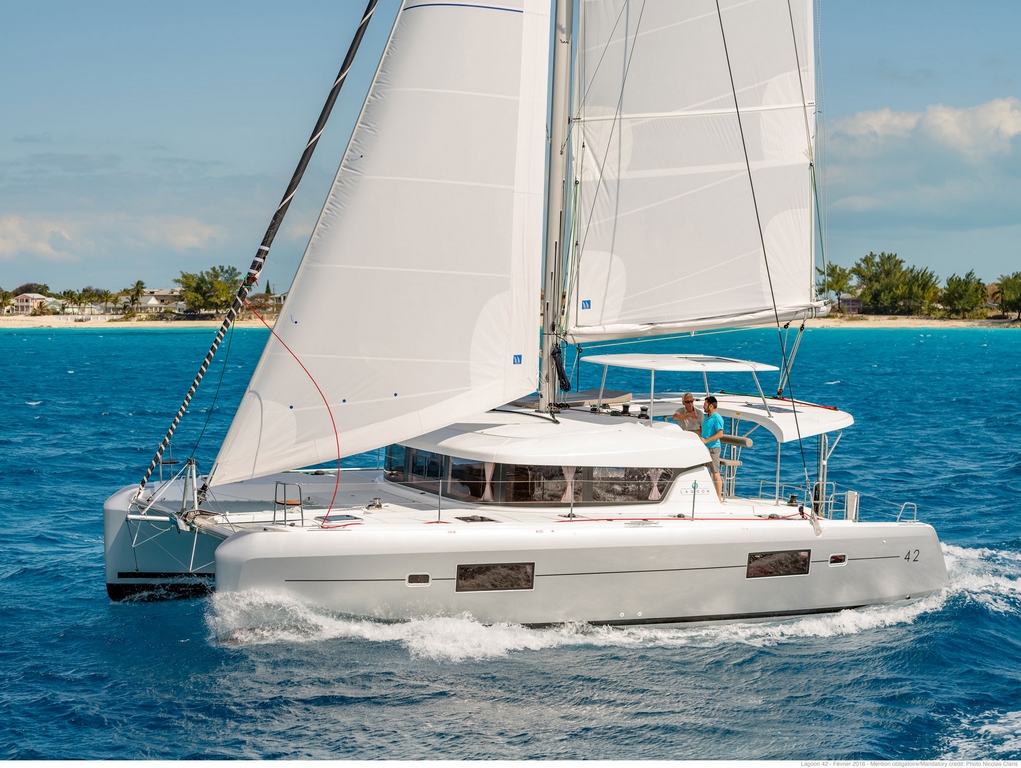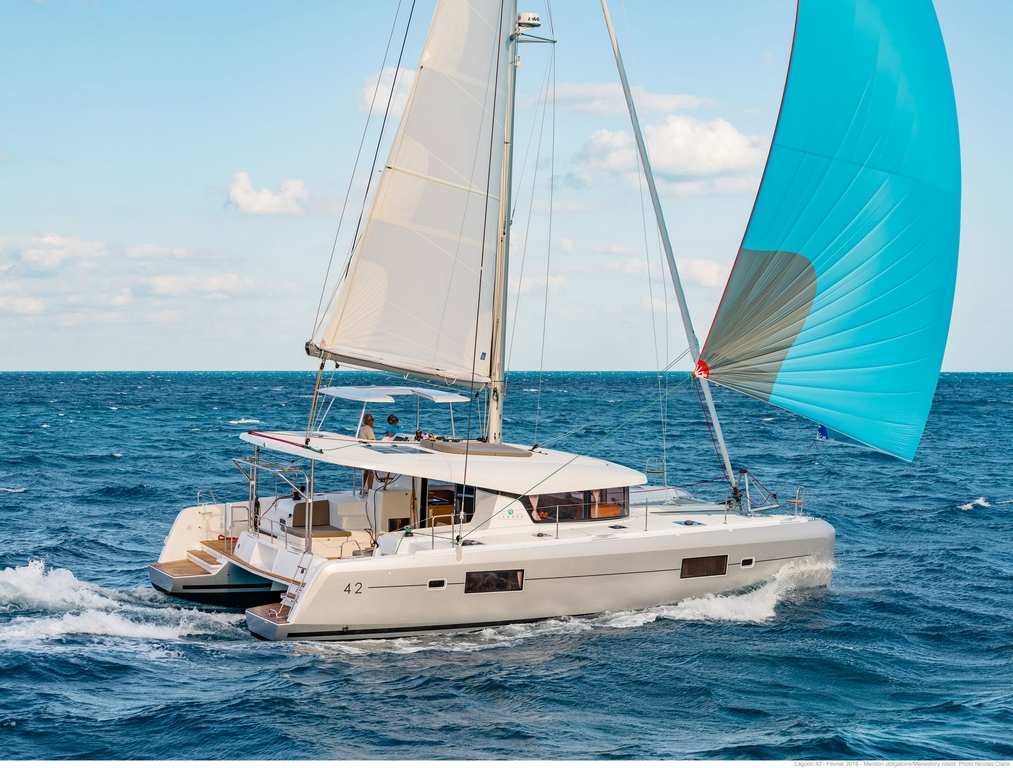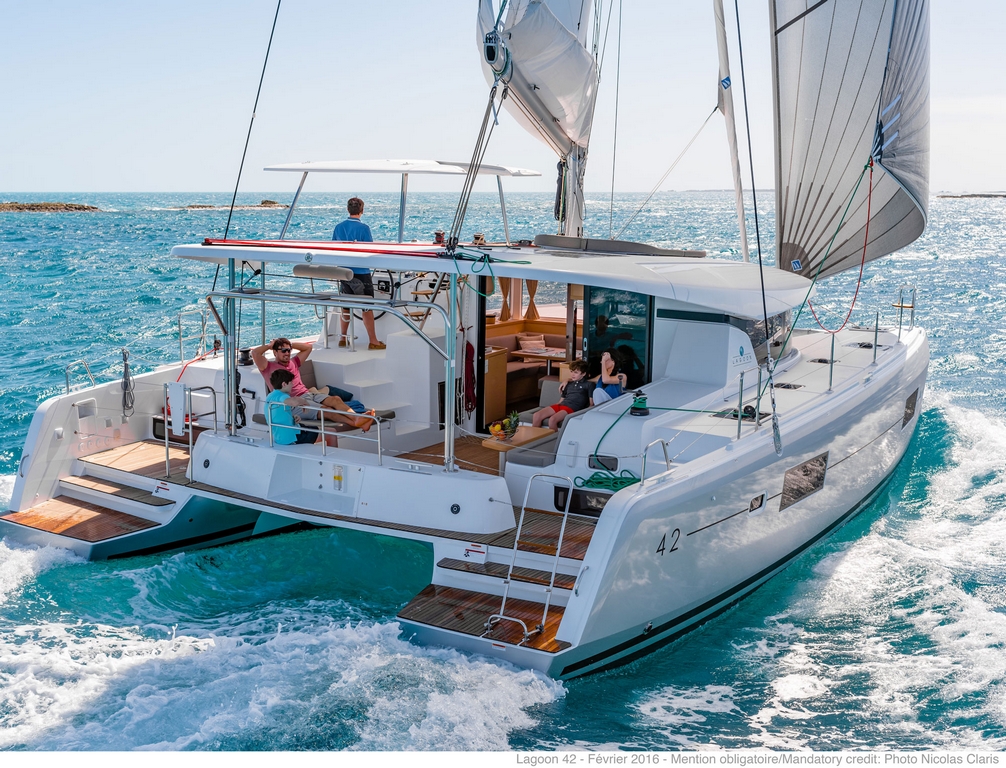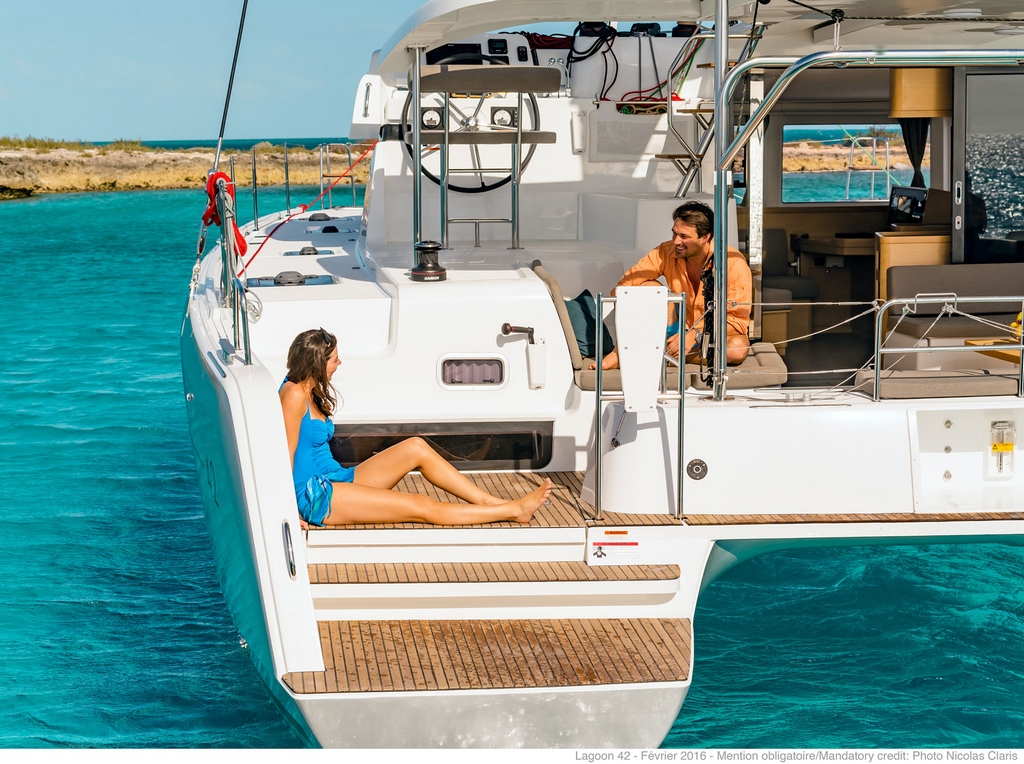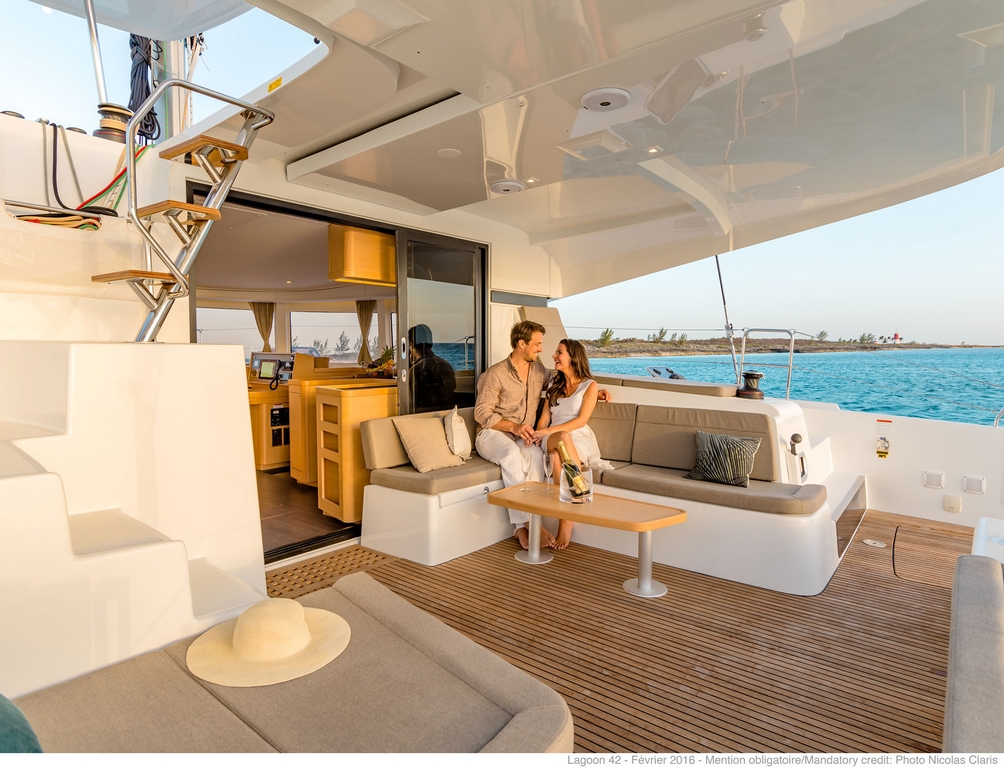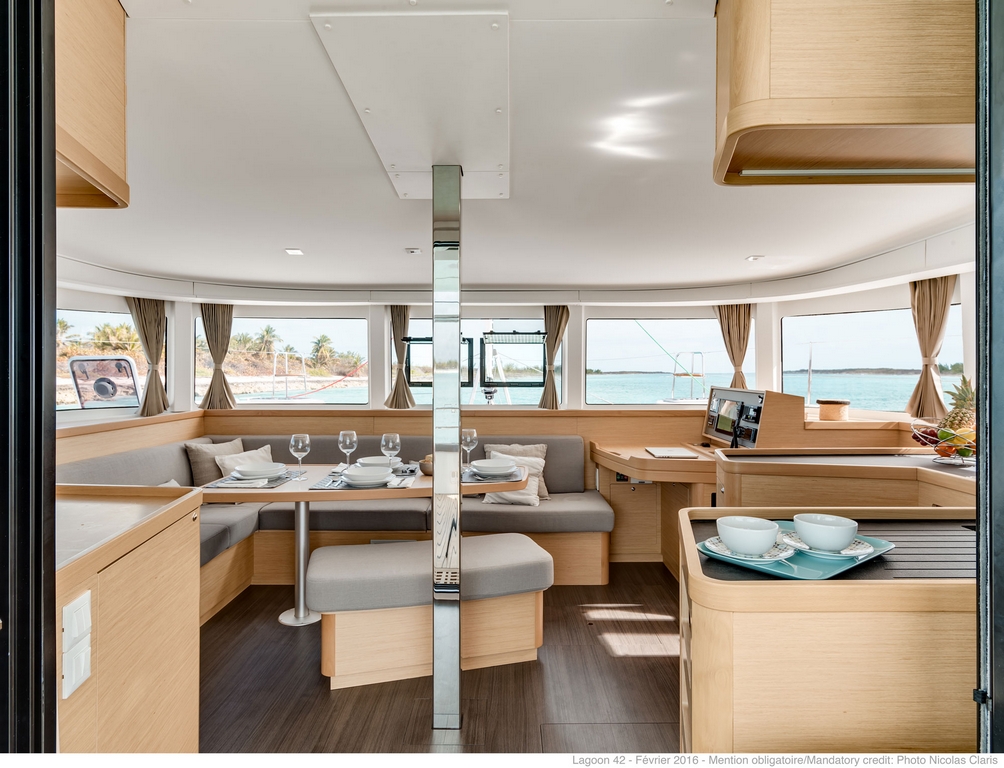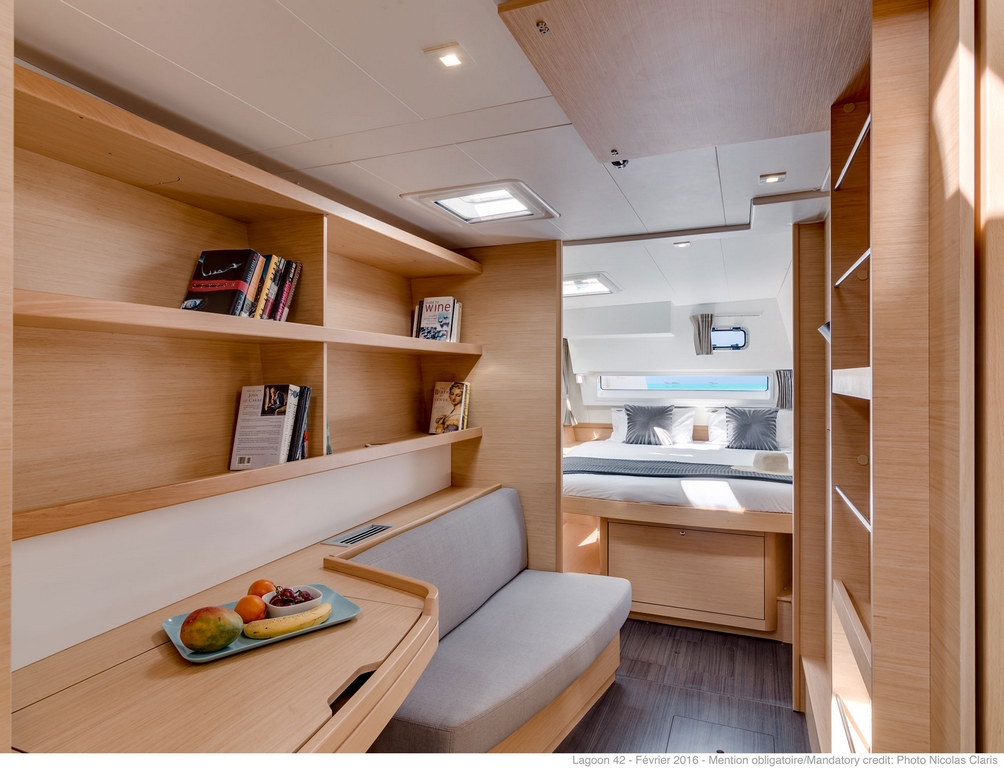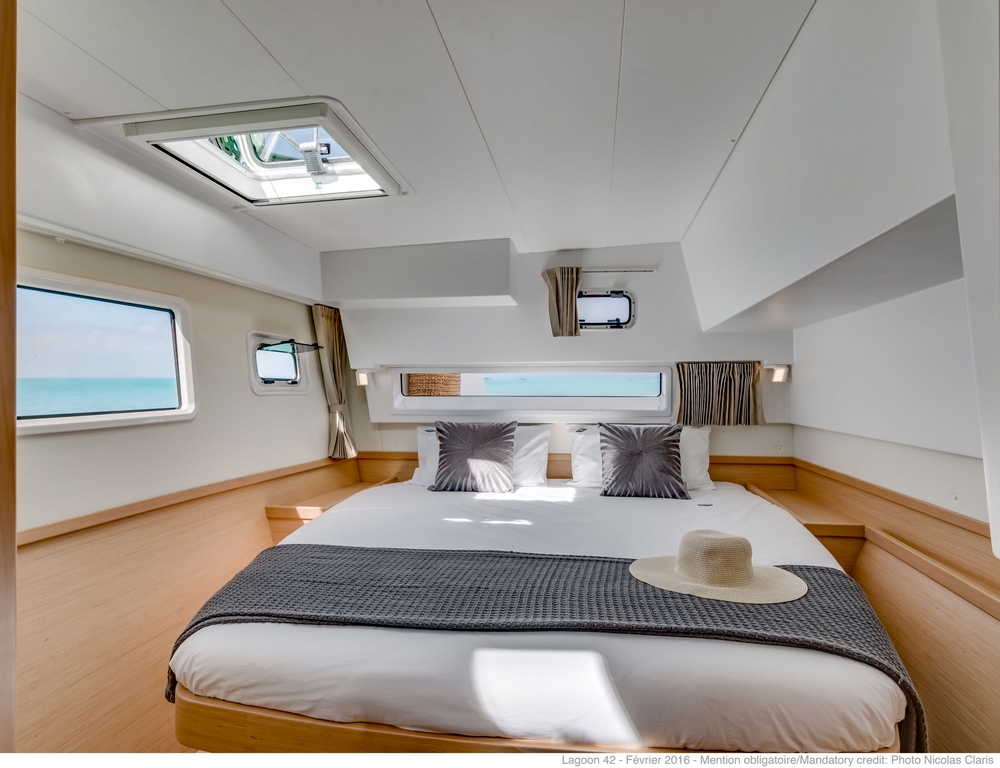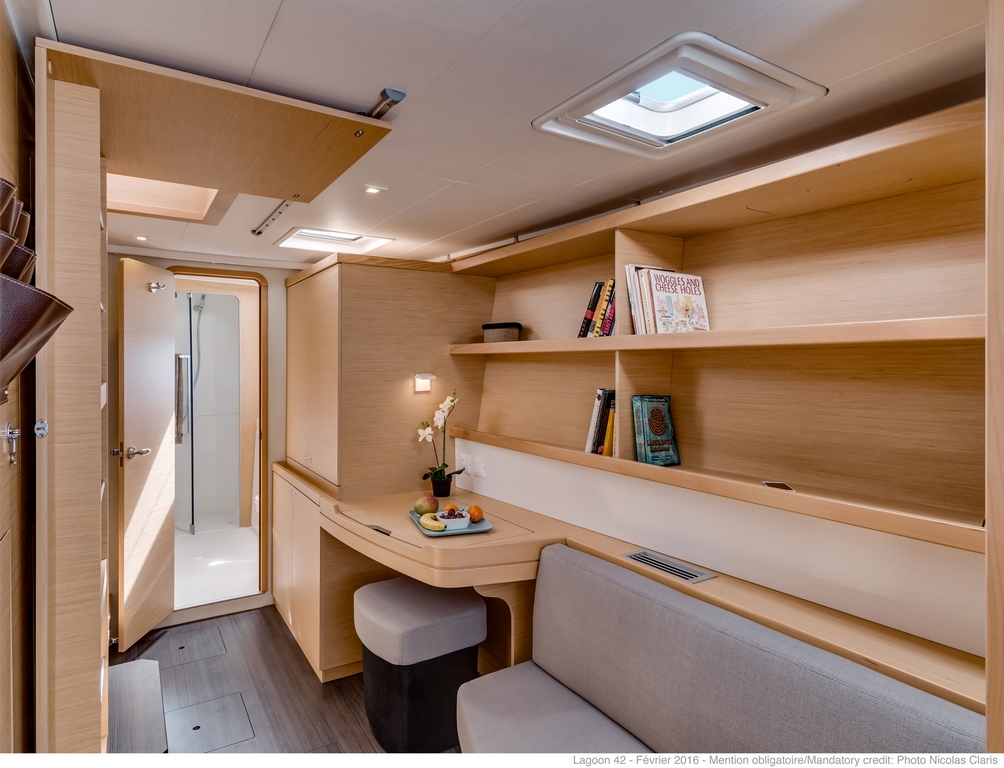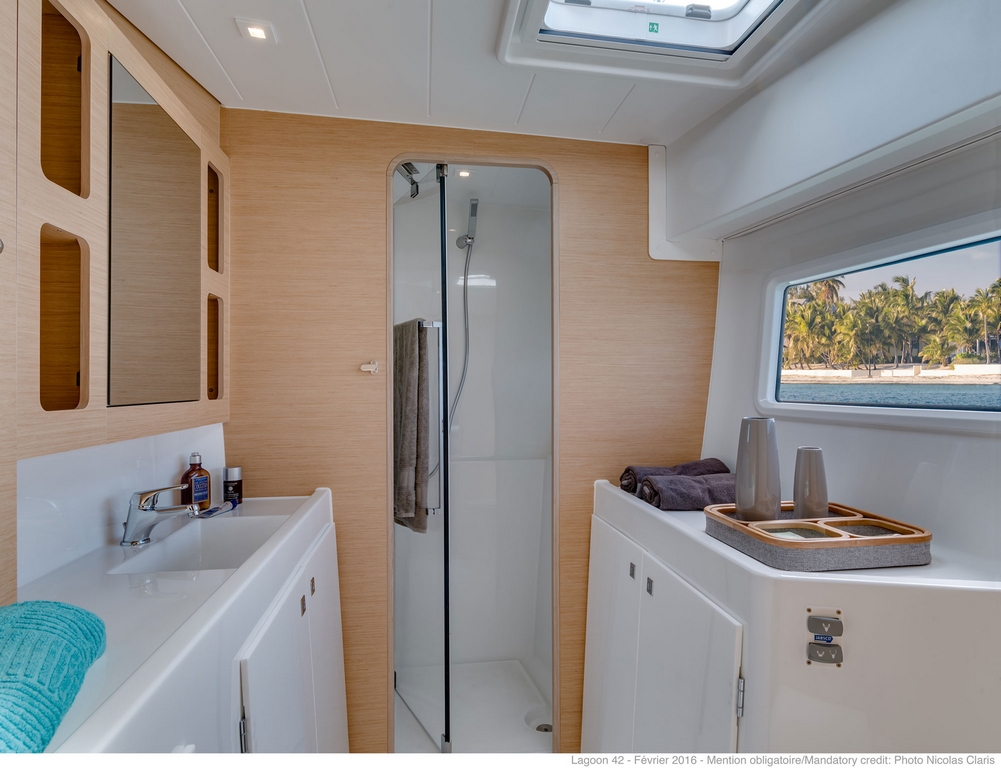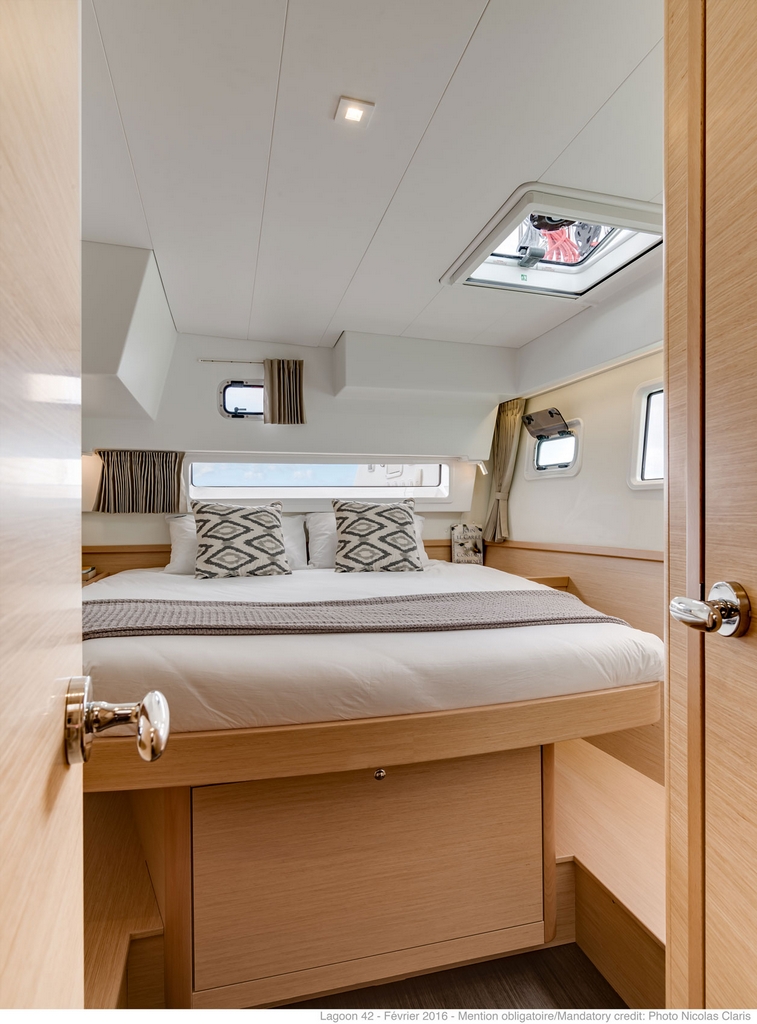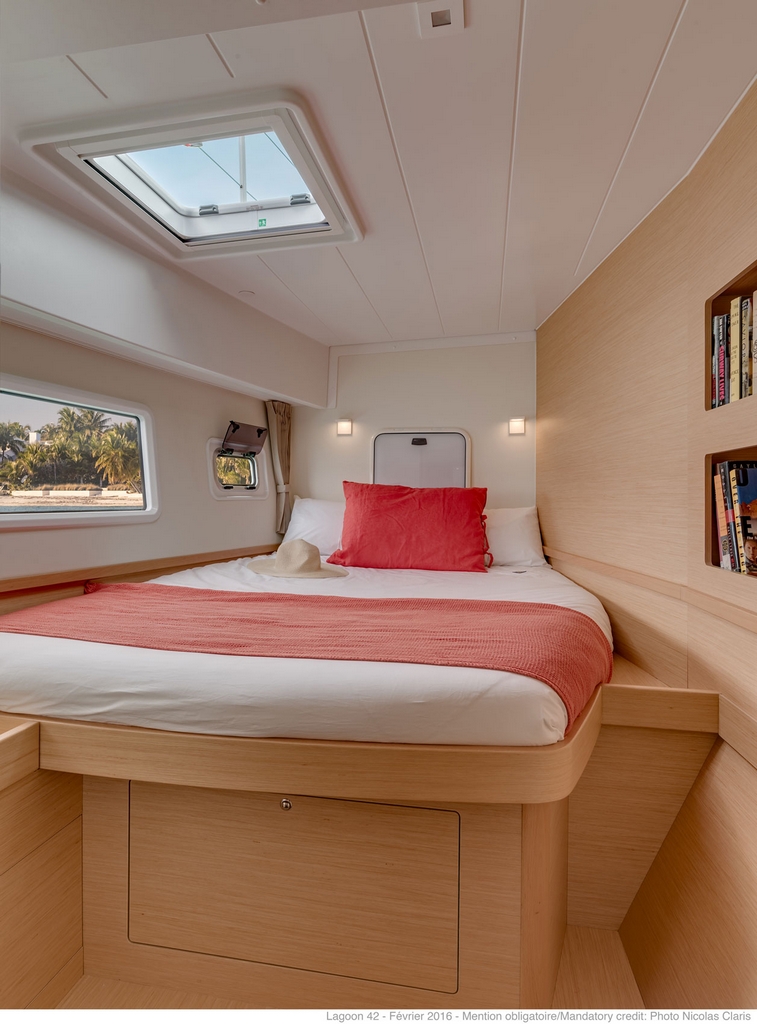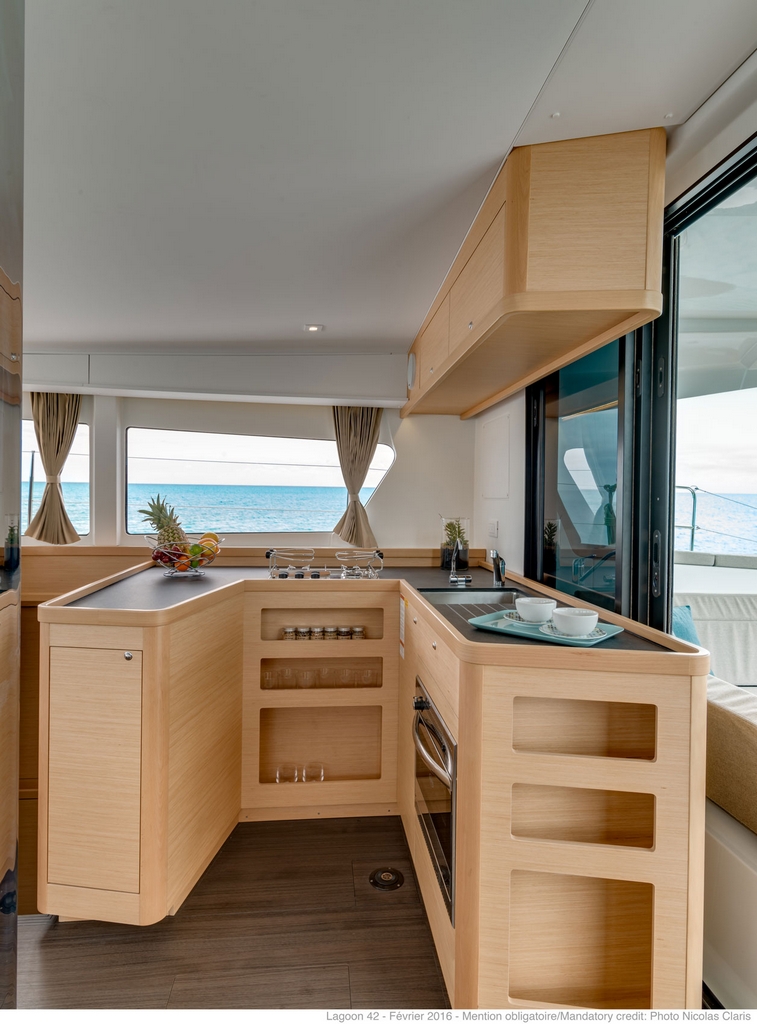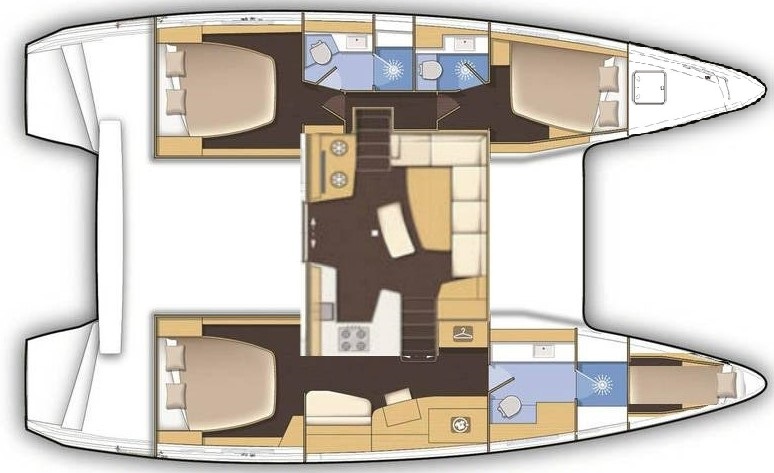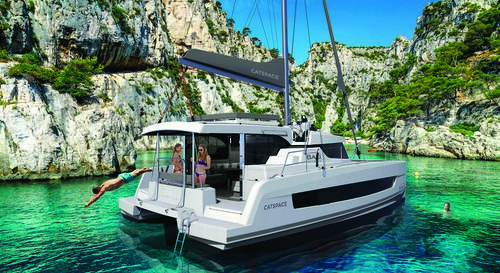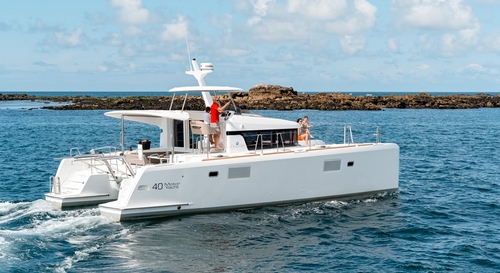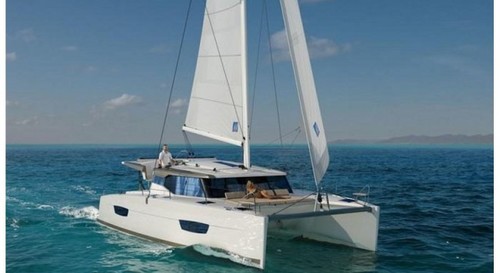GENERAL CONDITIONS
1. Contractual Partners
Contractual partners are The Charter Company, the Yacht Charter Operator (hereafter called The Charter Company) or organizer and
the Charterer – as mentioned in the Contract. The Yacht Charter Operator (organizer) is the Owner of the craft
chartered by the Charterer or a person authorized by the latter. The Yacht Agency (hereafter called YA) acts as
intermediary in this contract.
2. Acceptance of the Contract and its Conditions
a) The Yacht Agency is authorized to set up this Contract as representative of the The Charter Company and duly sign it.
b) The Charterer confirms that he has read the Contract and that he understood the nautical terminology used
therein. Moreover, the Charterer agrees with the General Conditions of the Contract including the special
characteristics of chartering a craft and with this type of sportive activity.
3. Charter Fee
The charter fee encompasses the use of the craft and its inventory. Extras and incidental expenses will be calculated
separately and will not be taken into consideration in case of possible refunding of charter costs. The following
items are not included in the charter fee: Port charges, fuel, gas, water and all expenditures for measures which are
required for the proper operation of the craft during the trip. Obvious mistakes in calculating the charterer fee or
inadequacies referring to some of the terms in the Contract do not justify exiting from the Contract; rather,
corrections may be duly undertaken, based on the current list of fees and the current contractual conditions of the
The Charter Company. Irregularities in equipment or gear (non-correspondence with inventory or equipment lists supplied to
Charterer) do not authorize the Charterer to make any deductions – provided safety and operation of the craft as
such and functioning equipment are guaranteed.
4. Journey to Location of Craft Check-in
The journey to the location is not part of the Contract. If the start of the journey is delayed because the Charterer or a
member of the crew arrives late, there shall be no refunding of costs. Charterer and crew are aware of the fact that
they are leasing an “instrument” to exercise boating and that the terms agreed on differ from laws and regulations
governing the tourist sector.
5. Charterer´s Exiting from the Contract
a) The period of validity of the Contract can only be changed in agreement with the The Charter Company and according to the
existing possibilities.
b) Cancellation by the Charterer up to eight weeks before the start of the journey – cancellation fee depending on the
payments already made. After this deadline the full amount has to be paid. It is recommended to the Charterer to
take up a special insurance in case of cancellation.
c) If there is a possibility to re-charter the craft, (either in part or in full), 10% of the charter fee will be withheld to
cover relevant expenses. The remaining sum will be refunded to the Charterer by the The Charter Company.
d) Defects, incorrect recordings of instruments or other problems with gear or equipment do not entitle the Charterer
to either refuse check-in, stop the trip or raise financial claims – provided correct navigation is possible by applying
classical navigation methods, such as position fixing by bearing, dead-reckoning navigation etc. and if safety of ship
and crew is guaranteed by good seamanship.
6. Check-in and Check-out of Craft
a) The Charter Company is obliged to properly instruct the Charterer or the person nominated by him (Skipper) about all
technical details concerning gear and equipment, using a check-in or inventory-list. Trial trip may also be requested
by The Charter Company. By signing the checklist the Charterer/Skipper confirms that he has taken over the craft in good condition,
clean, with full tanks (fuel, water) and fully functioning gear and equipment. Possible defects, damages or missing
parts of gear and/or equipment must be laid down in writing.
b) The Charterer may refuse check-in if safety standards do not comply with national rules and regulations or if hull,
bonding deck to hull, rig, sail or steering gear are damaged to such an extent that safety of both ship and crew can no
longer be guaranteed. In this case item 6a comes to bear.
c) The Charter Company may refuse to hand over the craft if
· the fee has not been fully paid
· deposit has not been made or replaced by an insurance
· necessary documents are missing or insufficient (no license or a license not valid for the chartered craft, etc.)
· during the process of check-in or during a trial trip it turns out that the Skipper does not have the required
qualification for this job.
d) in the latter case or if there are licensing problems, the journey may be started with another Skipper, expenses
paid by the Charterer.
7. Delayed Check-in Procedure
a) If the The Charter Company cannot supply the craft or an appropriate replacement (meaning a type similar in dimensions, gear and
equipment) and the delay exceeds 2/7 of the total charter time or a maximum of three (3) days, the Charterer has the
right to withdraw from the Contract. In this case payments already made will be refunded to him. No further claims
may be raised.
b) If it is an established fact before the start of the trip that neither craft nor replacement will be available on the
agreed date, The Charter Company shall be obliged to inform the Charterer as soon as the former knows the facts. In this case
both parties may withdraw from the Contract before the assumed start of the trip. Payments made by the Charterer
will be refunded as above. No further claims may be raised.
c) If check-in time is delayed by The Charter Company for reasons he is responsible for, the Charterer will get a pro rata refund
from The Charter Company,
· provided either the check-in procedure had originally been agreed to take place in the second part of the day
including an overnight stay on the craft
· or if a replacement and/or actual check-in has not occurred until noon the next day the latest
· or if the check-in of the craft had originally been agreed to take place during the first part of the day but in reality
was delayed for more than 12 hours.
8. Insurance and Deposit
The chartered yacht is insured against third party damage, fire, lightning, explosion, theft or robbery or damage
caused by natural disasters, marine and collision risks, and against any loss or damage except equipment expressed
in this contract.
The financial liability of the client (charterer) for loss or damage caused by him or a crew member is limited with the
agreed deposit. Exceptions are mentioned in this contract.
a) The insurance premium for the craft chartered is included in the charter price or separately charged as extra costs.
b) The insurance does not cover accidents of crew members, losses or damage to their personal belongings. We
recommend taking up a special insurance for this purpose.
c) If the insurance comes to bear in case of damage, terms state that the damage had not been caused deliberately or
by gross negligence or that the charterer /Skipper did not set a behavior, which release the insurer to fulfill its
contractual obligation.
It is expressly stipulated that in case of gross negligence or deliberate act the liability of the Charterer is not limited
by the deposit. The Charterer may be forced to pay the full sum of the damage.
9. Use of the Craft, Obligations, Damages
a) The Charterer/Skipper agrees to navigate the craft with special consideration of good seamanship and careful
observation of all legal regulations and provisions as applicable in all the countries visited
b) The Charterer or the Skipper nominated by the Charterer are committed
· not to accept more than the maximum number of persons permitted on board and to inform The Charter Company and the
relevant authorities about any changes in the crew
· not to allow the craft to be used for transporting passengers nor for commercial fishing nor for any other gainful
activity
· not to take part in races without the express agreement of The Charter Company and not to re-charter the craft
· not to use the craft for towing other crafts or to be towed or rescued by other crafts except in cases of emergency;
should such an emergency arise, orders have to come from The Charter Company (or a person authorized by him). Should this not
be possible, the Skipper has to establish contact with the skipper of the other vessel and come to an agreement about
costs of towing or other rescue operations before help is accepted.
· to write a logbook in which the following items have to be recorded in chronological order: course, maneuvers,
logs, proper handling of sails/engine, positions, checks, maintenance and repairs, important events or observations
(accidents)
· not to let the engine run if the ship sails in a sloping position and to use the engine only as long as it is necessary;
sails should be adapted to the rig and to the existing wind forces
· to leave a protected harbor only if the principles of good seamanship allow this
· to leave unsafe anchorage places or moorings if the weather forecast, the existing weather conditions or the
foreseeable development makes it necessary.
· to take care that while the craft is anchored or moored danger to the craft has to be recognizable at all times, thus
allowing measures to be taken to avoid danger.
c) If there is damage on the craft due to material wear, the Charterer/Skipper has to arrange for a replacement of the
parts or repair as instructed by The Charter Company or his deputy. If neither can be reached, Charterer or Skipper is authorized
to organize repair or replacement – provided the amount does not exceed 100 Euros. This sum will be refunded at
the end of the journey after submitting the bill except if the damage is due to incorrect operation of the craft, faulty
or negligent handling by Charterer/Skipper or the crew. Parts that had to be exchanged are not to be disposed of. If
the craft has to stay in port because of repairs, the Charterer is not entitled to raise any claims if the delay does not
exceed 1/7 of the entire charter period. Otherwise the Charterer has to be reimbursed on a pro-rata basis. There are
no further claims to be raised.
d) In case of major sea damage or accident, possible delay or loss of maneuverability of the craft, The Charter Company has to be
informed at once. The Charterer/Skipper has to undertake everything in his power to reduce the effects as well as to
avoid consequential damage (for instance breakdown, etc.). In concerted agreement with The Charter Company, the
Charterer/Skipper has to organize the necessary repair work, to document all the facts, to monitor the repair work
and to negotiate price and payment. Moreover, the Charterer/Skipper is obliged to keep a record of the details of the
damage and – provided there are claims of third parties – to have all the data confirmed by the relevant authorities.
The Charterer/Skipper may be obliged to pay for the entire costs if the aforementioned conditions are not properly
adhered to. The Charterer/Skipper is fully liable for all direct and consequential costs such as confiscation of the
craft if it is within the scope of responsibility of the Charterer/Skipper or members of the crew.
e) If there is reason to assume that the craft is damaged in the part under water, the craft has to be navigated to the
nearest port where the services of a diver must be engaged, the supply of a crane organized or a slip up arranged.
The costs have to be borne by the Charterer.
f) Theft of the craft or of part of the gear or equipment has to be reported to the nearest police precinct
g) Animals may be taken aboard only with the express permission of The Charter Company.
10. Check-out
a) The Charterer has to return to the port at the time stipulated in the Contract or to inform The Charter Company in writing about
any change. The agreed schedule also has to take in clemency of the weather or other adverse circumstances into
consideration. If the Charterer is unable to return the craft he has to inform The Charter Company and make arrangements to
have the craft returned by another person at the Charterer´s cost and risk. Until the check-out the Charterer has to
leave a qualified person on board. If the Charterer does not comply with this provision, he has to satisfy all financial
claims resulting from this negligence and breach of Contract. The financial obligation is not limited with the agreed
deposit. The Charter Contract has not been fulfilled entirely until the craft is returned in the condition as stipulated
in the Contract.
b) Any day of delay in returning the craft will ensue compensation payment amounting to the double of the daily
Charter fee. Calculation is based on the items contained in the current price list of The Charter Company. (Discounts granted or
other special conditions such as early booking or a bonus for a “regular” Charterer cannot be taken into
consideration when calculating the fine due for late return).
c) The Charterer has to return the craft to The Charter Company at the date and hour agreed on the latest. Until this point in time
the entire crew has to have left the craft including baggage. Time for cleaning and check-out including inspection by
The Charter Company or his deputy is part of the agreed time schedule laid down in the Contract.
d) At the check-out any part of the equipment or gear lost or damaged has to be recorded in detail and paid for. The
amount may be deducted from the deposit. The Charter Company also has to be informed about groundings and possible defects.
e) If craft and equipment are in good condition, clean, complete and with a full tank, the deposit will be returned to
the Charterer. The proper condition of the craft at check-out has to be confirmed and signed jointly by Charterer and
The Charter Company or their deputies.
f) If the craft is not properly cleaned both inside and outside, The Charter Company is entitled to have cleaning arranged at the
Charterer´s expense. If the final cleanup is included in the fee for the charter, it implies that the Charterer has to
hand over the craft clean and tidy (including kitchenware). If this is not the case, The Charter Company may collect a special
amount for the extra cleaning required.
g) If repairs are necessary, the Charterer has to contact The Charter Company and agree on an earlier return of the craft so that
work can be done in good time for the next charter to start. If the damage is within The Charter Company´s responsibility, fees
covering the loss (day(s) will be reimbursed to the Charterer. Any additional claims by the Charterer (cost of
overnight stays, etc.) are excluded (see also item 8). If the Charterer causes the damage, no compensation for lost
time during the trip will be disbursed.
h) If damage or losses are a case for the insurance company, return of the deposit or parts thereof will be delayed
until payment from the insurance has arrived. Deposit will be handed back to the Charterer after deducting the
retainer and all costs incurred by repairing the damage that are not covered by the insurance. The deposit may also
be withheld if the repair costs or other expenditures to be paid from the deposit cannot be calculated exactly at the
time of the craft check-out.
i) Any claims for damages raised by the Charterer against The Charter Company must be put down in writing immediately after
check-out of the craft and contain pertinent explanations. Claims raised later cannot be considered.
11. Restrictions Ordered by The Charter Company
The Charter Company reserves the right to limit the range of the craft either based on the vessel´s category or if conditions for
navigation are unsafe or otherwise unusual. A ban on navigating the craft at night may also be pronounced by The Charter Company. The responsibility for ignoring such restrictions is exclusively with the Charterer/Skipper.
12. Liability and Place of Jurisdiction
All disputes between Charterer and The Charter Company have to be settled directly between these two. If arbitration or court
proceedings are required, the place of jurisdiction is at the location of The Charter Company Head Office. For any disputes
between the Charterer and the YA, Croatian Law shall apply. If it is a case for the Courts, the place of jurisdiction
will be the location of YA Head Offices.
13. LIABILITY OF THE YA
The YA act as the intermediary between Charterer and The Charter Company. His liability does not exceed his specified tasks or
responsibilities as laid down.
If parts of the Contract are null and void or invalid, the other parts retain their validity. The signers reserve the right
to correct mistakes, misprints or errors in calculating.
Any agreements not contained in the Contract, oral promises or changes have to be confirmed in writing.
By signing the document, the Charterer affirms that he has read the General Terms and Conditions and agrees to the
content.
